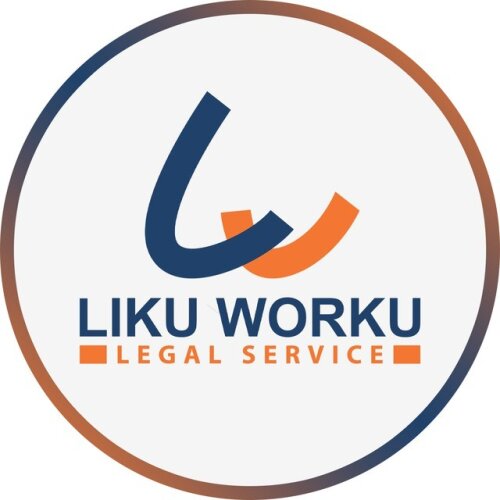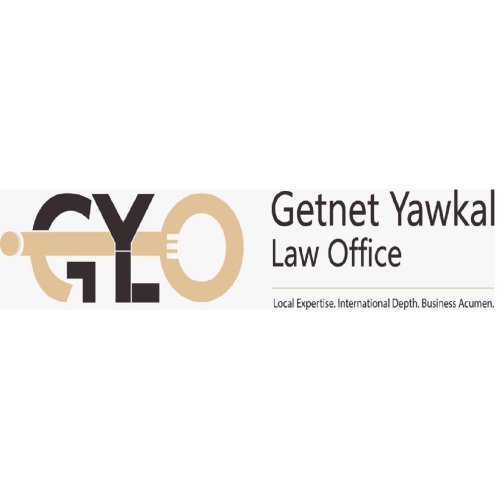Best Corporate Governance Lawyers in Addis Ababa
Share your needs with us, get contacted by law firms.
Free. Takes 2 min.
List of the best lawyers in Addis Ababa, Ethiopia
About Corporate Governance Law in Addis Ababa, Ethiopia
Corporate governance refers to the systems, principles, and processes by which companies are directed and controlled. In Addis Ababa and across Ethiopia, corporate governance ensures that businesses are run ethically, transparently, and in the best interests of stakeholders. Ethiopian laws establish frameworks to regulate how companies are organized, how decisions are made, and how responsibilities are divided among owners, boards, and management. As the economic and business hub of Ethiopia, Addis Ababa is home to many corporations and startups, making compliance with corporate governance laws essential for organizational success and sustainability.
Why You May Need a Lawyer
Legal advice in corporate governance is critical for both new and established businesses in Addis Ababa. There are several scenarios where you may need a lawyer's help, including:
- Establishing new companies and drafting foundational documents like articles of association and bylaws.
- Navigating compliance with the Commercial Code and sector-specific regulations.
- Assisting with director and officer appointments, removals, or disputes.
- Managing shareholder rights, responsibilities, and conflicts.
- Preparing for or responding to audits and regulatory inspections.
- Addressing allegations of mismanagement, conflict of interest, or breaches of fiduciary duties.
- Advising on mergers, acquisitions, restructuring, or company dissolution.
A corporate governance lawyer helps you avoid legal pitfalls, ensures regulatory compliance, and guides you through dispute resolution.
Local Laws Overview
Corporate governance in Addis Ababa is primarily governed by the Ethiopian Commercial Code, which was thoroughly revised in 2021, modernizing the legal environment for business operations. Key aspects include:
- Definition and types of corporate structures such as Share Companies, Private Limited Companies (PLCs), and others.
- Requirements for the establishment, management, and dissolution of companies.
- Roles and duties of shareholders, boards of directors, and supervisory boards.
- Rules concerning corporate transparency, record-keeping, and reporting obligations.
- Procedures for handling conflicts of interest and related party transactions.
- Mandated disclosure of financial statements and audit requirements for certain entities.
- Mechanisms for stakeholder protection, including minority shareholders and creditors.
Companies registered in Addis Ababa must also comply with additional city-level business regulations and, in some sectors, guidance from specialized government agencies.
Frequently Asked Questions
What is corporate governance?
Corporate governance is the system by which companies are directed and controlled, ensuring accountability, transparency, and fairness in a company's relationship with all its stakeholders.
What organizational structures are recognized under Ethiopian law?
The Commercial Code recognizes Share Companies, Private Limited Companies (PLCs), General Partnerships, Limited Partnerships, and Sole Proprietorships.
Who can be a company director in Ethiopia?
Directors must meet certain qualifications outlined in the Commercial Code and company bylaws. Generally, both Ethiopian and foreign nationals can serve, subject to legal restrictions and approval processes.
What are the basic duties of directors and officers?
Directors and officers must act in good faith, in the best interest of the company, and avoid conflicts of interest. They are responsible for corporate compliance, strategy, and ensuring proper financial reporting.
Are board meetings and general meetings required by law?
Yes, regular board meetings and annual general meetings are required for many forms of companies. The frequency and procedures are set in the Commercial Code and the company's charter.
How do shareholders protect their rights?
Shareholders have rights to attend meetings, vote on significant company decisions, receive dividends, and access certain company information. There are legal remedies available if their rights are violated.
Is external audit mandatory for all companies?
Not all companies must undergo external audits, but Share Companies and certain larger PLCs are required by law to appoint auditors and submit annual reports.
What happens if a company does not comply with corporate governance requirements?
Non-compliance can lead to regulatory action, fines, revocation of licenses, or even company dissolution. Directors or officers may also face personal liability in some cases.
Can foreigners own or direct companies in Addis Ababa?
Foreign ownership is allowed in many sectors, though there are restrictions in certain strategic industries. Directors can be foreigners, but companies must comply with investment and immigration rules.
How do companies resolve internal disputes?
Disputes among shareholders or directors are typically addressed through negotiation, mediation, or arbitration as outlined in the company's bylaws, or via the courts if necessary.
Additional Resources
If you need more information or help regarding corporate governance in Addis Ababa, the following resources and organizations can be useful:
- Ministry of Trade and Regional Integration: Main regulatory body for company registration and governance matters.
- Addis Ababa City Administration: Handles local business and licensing regulations.
- Ethiopian Investment Commission: Advises on foreign investment and regulatory compliance.
- Ethiopian Chamber of Commerce and Sectoral Associations: Provides business and legal support for members.
- Law faculties at Addis Ababa University and other institutions: Often host free legal clinics or educational events.
Next Steps
If you require legal assistance with corporate governance in Addis Ababa, consider these steps:
- Gather all relevant company documents such as certificates of incorporation, bylaws, shareholder agreements, and board minutes.
- Identify the specific issue or question you need resolved, making note of any deadlines or urgent matters.
- Contact a reputable lawyer or law firm that specializes in corporate governance. Look for professionals with experience in Ethiopian commercial law and a track record assisting businesses in Addis Ababa.
- If you are unsure where to start, reach out to business associations or legal aid clinics for referrals.
- Prepare a list of questions and goals before your consultation to make the best use of legal advice
Staying informed and proactive is key to ensuring your business in Addis Ababa operates smoothly and in accordance with the law.
Lawzana helps you find the best lawyers and law firms in Addis Ababa through a curated and pre-screened list of qualified legal professionals. Our platform offers rankings and detailed profiles of attorneys and law firms, allowing you to compare based on practice areas, including Corporate Governance, experience, and client feedback.
Each profile includes a description of the firm's areas of practice, client reviews, team members and partners, year of establishment, spoken languages, office locations, contact information, social media presence, and any published articles or resources. Most firms on our platform speak English and are experienced in both local and international legal matters.
Get a quote from top-rated law firms in Addis Ababa, Ethiopia — quickly, securely, and without unnecessary hassle.
Disclaimer:
The information provided on this page is for general informational purposes only and does not constitute legal advice. While we strive to ensure the accuracy and relevance of the content, legal information may change over time, and interpretations of the law can vary. You should always consult with a qualified legal professional for advice specific to your situation.
We disclaim all liability for actions taken or not taken based on the content of this page. If you believe any information is incorrect or outdated, please contact us, and we will review and update it where appropriate.

















